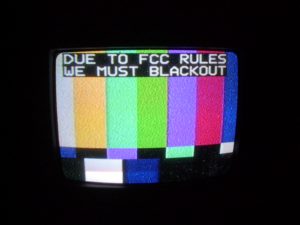The average internet user probably does not give a moment’s thought to internet neutrality, or even know what it is, for that matter. It is an incendiary topic causing much fervor on Capitol Hill, in the recording industry and certainly in cyberspace. The most current controversy involves the Internet Freedom Preservation Act of 2009, a proposed amendment to the outdated Communications Act of 1934, archaic legislation that essentially prevented publicly-funded radio from being used for commercial purposes.

Enter the political arena of the late 1990s when legislators began a major overhaul of the Federal Communications Commission. In 1996 began the first real attempt at major modifications of the original bill. The passing of the Telecommunications Act of 1996 began to open the doors for more free-market opportunities in communications. In 2008, Senator Edward Markly, a Democrat from Massachusetts, introduced more proposed legislation to the original bill of 1934. This proposed amendment contained provisions in it meant to appease opponents of the original plan from 1996. It would greatly expand the jurisdiction of the Federal Communications Commission to cover data transmission by a vast array of media venues. The bill, called HR 5353: The Internet Freedom Protection Act of 2008, was introduced on February 12, 2008. The bill essentially prevented misuse of power by major internet service providers. Proponents asserted the bill would promote fair-market values in the exchange of data transmitted over the internet. The relatively short proposal was succinct and direct in its language, despite the shady areas of opinion of its validity as a plausible, cause-worthy statute. It sought to strengthen the Federal Communications Commission’s control over internet data in addition to telephones, television and radio. Opponents cited risk of privacy invasion and the breakdown of capitalism, charging the bill would block the fair market system by putting a strangle-hold on the rights of telecommunications companies to offer exclusive deals to certain advertisers. By June of 2008, the Recording Industry Association of America had voiced its own concerns about piracy in a written letter to Congress that resulted in Senate Hearings on the matter. Despite their concerns, the RIAA was still in full support of the bill. Unfortunately for Senator Markly, the bill failed.
Not to be dissuaded from his cause, Markly began another round of bargaining when he introduced yet another bill proposal on August 1, 2009. The newest bill, and the source of all the current controversy, is HR 3458, otherwise known as the Internet Freedom Preservation Act of 2009. The amendment proposes legislative restrictions on internet companies to prevent them from slowing competitors ads on their site, or blocking them all together. Supporters of the amendment assert the protection of capitalism and free market enterprise. This time, Markly has made a few concessions to the amendment, in order to appease opponents of the bill and hopefully change their minds and garner their support. Markly hopes to convince his naysayers passing the bill is a matter of protecting our right to freedom of speech. Opponents say constitutional law covering freedom of speech only covers rights being threatened by the government, not disagreements in business practices. The main point proponents of the bill wish to emphasize is the role of the internet as a part of our integral infrastructure, as important to our continuity as a society as electricity and roads.
The question becomes, then, what is the the extent of the importance of the internet in our lives? How essential to the survival of our society has the internet become? Has the internet, to so much a degree unstoppable (YouTube anyone?), become such a gargantuan entity in and of itself that it no longer falls under the same jurisdiction as other media venues? Will the feds have to move over and let the cyber-geeks drive once the controls are too complicated for politicians to operate?
Trina L. Grant is a professional freelance writer and editor. You can find more samples of her writing as well as more information on legislation and communications on her blog, Destination Freelance and her website.
Image courtesy sxc/fumes











